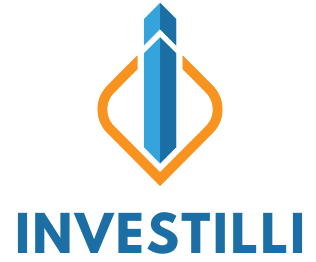Managing Retirement Accounts: Maximizing Your Pensions Allowance
When individuals prepare for retirement, they will realize the need to maximize pension allowances in order to provide financial security during older years. Pension plans help individuals achieve a steady income in their old age. Still, managing such accounts could be quite puzzling. The following article will explain ways in which one can maximize pension allowance to prepare for great comfort in retirement.
Understanding Pension Plans
Most pension plans are one of two types: defined benefit or defined contribution. Defined benefit plans pay out a certain amount in retirement, usually based on salary and years of service. Defined contribution plans-most 401(k)s-will pay out what those contributions made during your working career, plus investment performance, will add up to. Understanding the specifics about your plan is crucial because it will direct your activities on getting the best that this plan has to offer.
Start Early and Contribute Regularly
One of the best ways to make the most of a pension plan is to begin early and make consistent contributions. When it comes to defined contribution plans, many employers make matching contributions-treating you like a proficient little piggy bank that they get to put free money into. The more you put in, the more free money you can sock away in your retirement account. Minimize contributions at least to the level to receive the maximum match while trying to maximize the free money they’re stuffing into your 401 or other similar retirement account.
For defined benefit plans, it is important to know your employer’s contribution formula. If your employer allows additional voluntary contributions, you could consider paying these out to top-up your future pension benefits. Periodic contributions can add up over time and multiply into an inflated retirement income.
Investment Diversification
Most plans actually offer several choices, including stocks, bonds, and mutual funds. Divestment is necessary in defined contribution plans. A diversified portfolio, therefore, would be beneficial as far as risk management, optimizing returns, etc., are concerned. As a rule, the higher proportion of equities suits the younger investors, while income-generating investments are better suited for those closer to retirement.
Be careful to check your investment portfolios regularly to keep them aligned with your retirement vision and risk tolerance. Periodic adjustments based on market fluctuations or changes in your personal circumstances will best leverage your pension’s potential.
Know Your Options for Payouts
Knowing how to take a distribution of your pension plan at retirement may be really essential. For defined benefits, disbursements are made as monthly annuities. Most plans, however, will allow you to take a lump sum. Choose the one that best suits you. A steady income flow can bring security, but a lump sum does give you much better chance for effective management of your funds.
Defined contribution plans offer a variety of withdrawal strategies, such as systematic withdrawals or annuitization. This will depend on your expenses and longevity when deciding what is best to be taken out. Consulting a financial advisor can yield some individualized insight regarding what best suits the situation.
Plan for Taxes
Tax implications can play a huge role in your retirement income. Withdrawals from traditional retirement accounts are typically taxed as ordinary income, which could immediately impact your tax bracket. Consider strategies like tax-loss harvesting in investment accounts or converting a traditional IRA to a Roth IRA in order to manage future tax liabilities.
Knowing how taxes will play in your pension payouts helps you strategize withdrawals so as not to pay much in taxes. You will need to seek advice from a tax professional about the best strategy suited to your finances.
Stay Informed and Adjust Accordingly
Finally, you must keep your position with updates of changes in pension regulation, tax laws, and market conditions to ensure that you obtain maximum returns from your retirement funds. You need to review your retirement strategy regularly and update it according to need. Change of job, marriage, or even health could mean a change in financial goals and strategies.
Conclusion In a nutshell, a maximum pension from retirement should be a more aggressive and informed idea. At this stage, if one knows the pension plan, contributes regularly, diversifies investments, and plans the withdrawal strategies as well as accounts for and manages tax implications, then the ability to be financially sound at retirement will be amplified. All these ensure that it will not only allow wise handling of retirement accounts but a far more comfortable and worry-free retirement.
Share this content:



